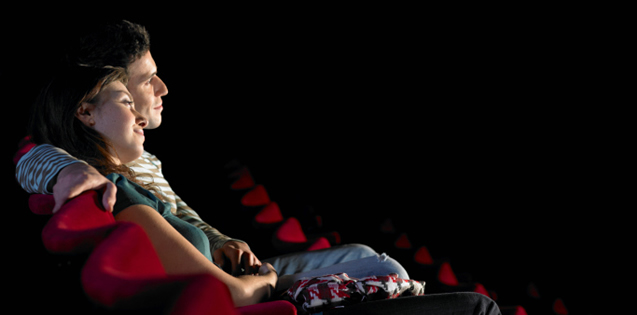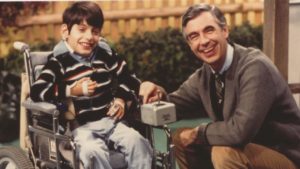How much do you think television and movies influence what we expect out of our romantic relationships? On one hand, I suspect most reasonable people would probably (or perhaps I should say hopefully) recognize that the way love gets presented in entertainment isn’t necessarily realistic. Certainly we can have romantic, dreamy moments. I’m all for those. But real-world obstacles generally aren’t overcome in 22 or 90 minutes. And, frankly, I’ve yet to have a soaring symphony of strings and horns provide an orchestral soundtrack to even my most romantic experiences with my wife.
On the other hand, there seem to be some who take Hollywood’s take on romance pretty seriously — and the result isn’t a good one for their real-world relationships.
A new study by Jeremy Osborn, a researcher at Albion College, sought to correlate the extent to which buying into television’s portrayals of romance impacted marital satisfaction. Osborn evaluated data from 390 married couples in his (lengthily titled) study, “When TV and Marriage Meet: A Social Exchange Analysis of the Impact of Television Viewing on Marital Satisfaction and Commitment.” In a nutshell, he found that the more someone thought TV’s depiction of relationships was accurate, the less satisfied they were with their spouses.
Osborn said of his findings, “In this study I found that people who believe the unrealistic portrayals on TV are actually less committed to their spouses and think their alternatives to their spouse are relatively attractive.” He also added, “The rate of marriage failure in the U.S. is not dropping, and it is important for people to have a sense of what factors are leading to the failure of so many relationships. … My hope would be that people would read this article and take a look at their own relationships and the relationships of those around them. How realistic are your expectations for your partner and where did those expectations come from?”
Interestingly, the results of Osborn’s study paralleled a similar poll that was conducted in Australia two years ago. Researchers there also found that romantic comedies could be contributing to unrealistic expectations in their relationships, such as the fact that 25 percent of those polled felt that their partner should always know what they’re thinking. “It seems our love of romcoms is turning us into a nation of ‘happy-ever-after’ addicts,” said Gabrielle Morrissey, a relationship counselor. “Yet the warm and fuzzy feeling they provide can adversely influence our view of real relationships.”
Personally, I tend to gravitate toward gritty films and television shows that try to deal realistically with the ups and downs that inevitably come in any loving relationships.
Yet, if pushed to tell the whole truth, I have to admit I have a bit of a soft spot for sappy romance, too. I thought Sandra Bullock was pretty adorable in While You Were Sleeping, for instance. Against my will, I found myself rooting for Tom “You Complete Me” Cruise in Jerry Maguire, recovering player though he was. And I was surely in a minority of professional movie critics who kind of liked Garry Marshall’s New Year’s Eve. Call me a sucker for sentimentality.
These films’ appeal, of course, is that they offer an idealized, romanticized blast of feel-good fantasy. Their potential peril, it would seem, is buying into that romanticized, sanitized and simplified worldview so deeply that it begins to affect the way we see real life.
So what about you? What movies or television shows (or music, for that matter) have tempted you to buy into Tinseltown’s vision of epic romance? Do you think there’s any potential upside or redemptive element in such idealized portrayals of love? Or are they destined to reinforce unrealistic — and perhaps unhealthy — expectations when it comes to the satisfaction we hope our romantic relationships will deliver?












